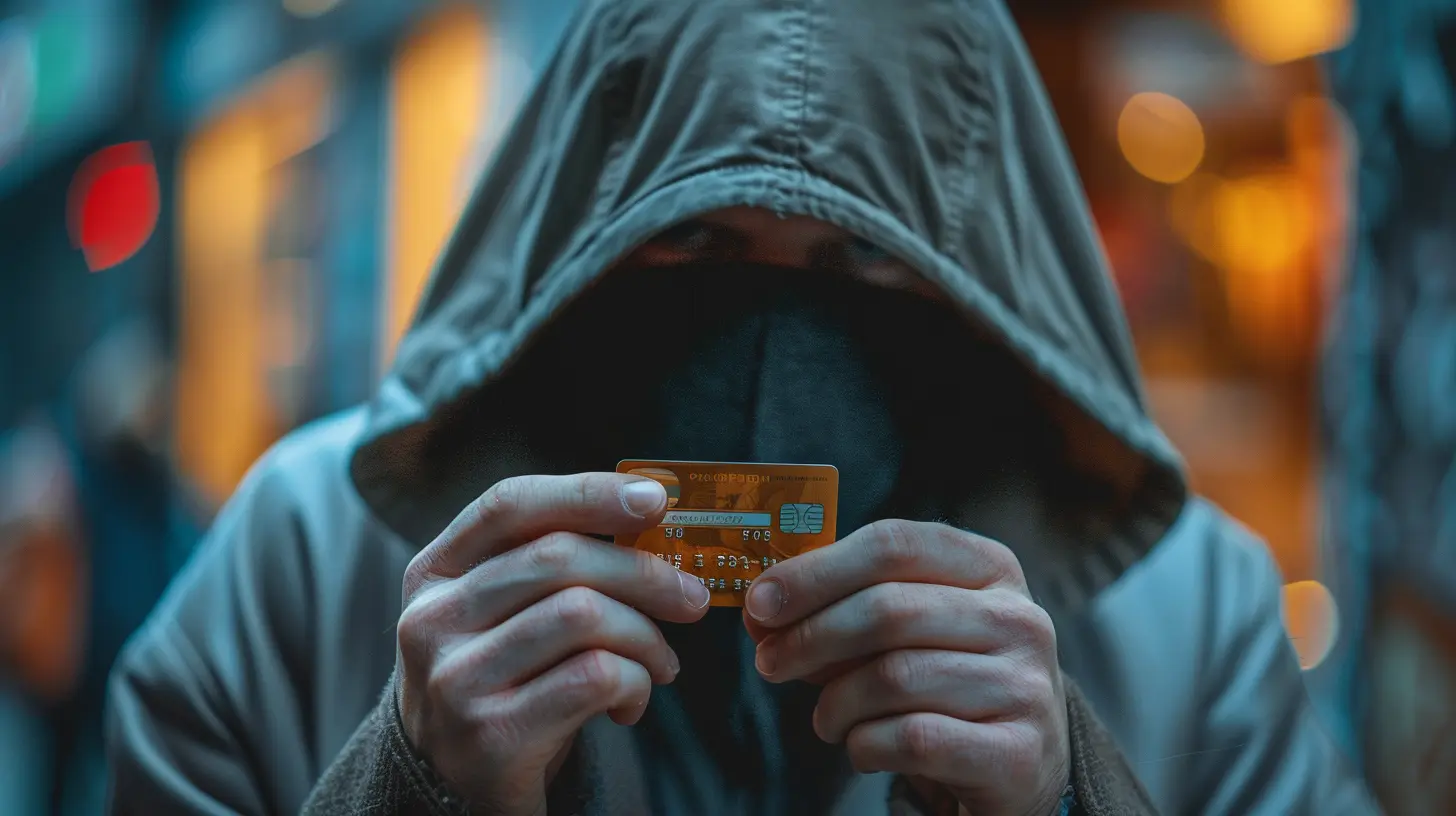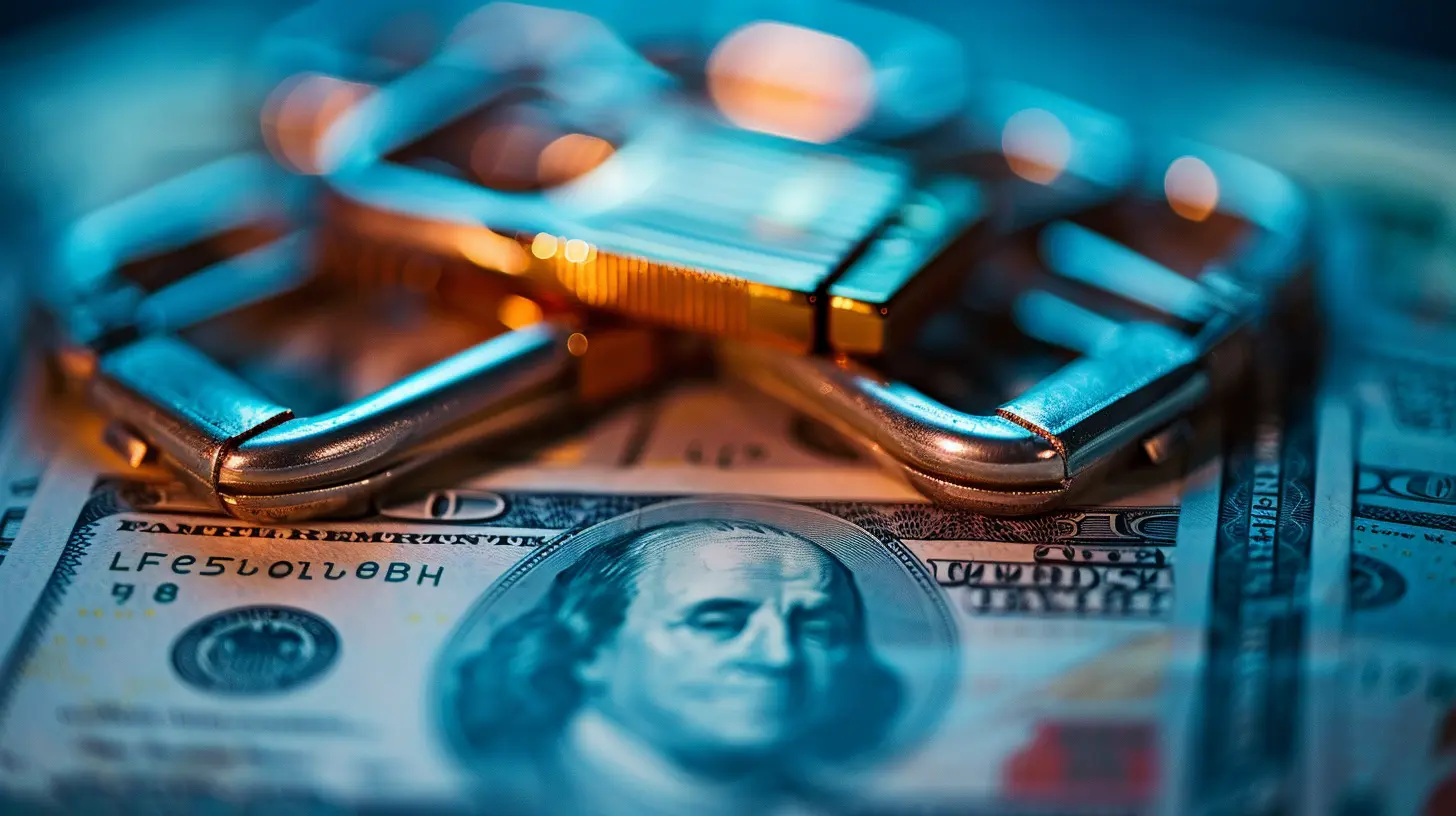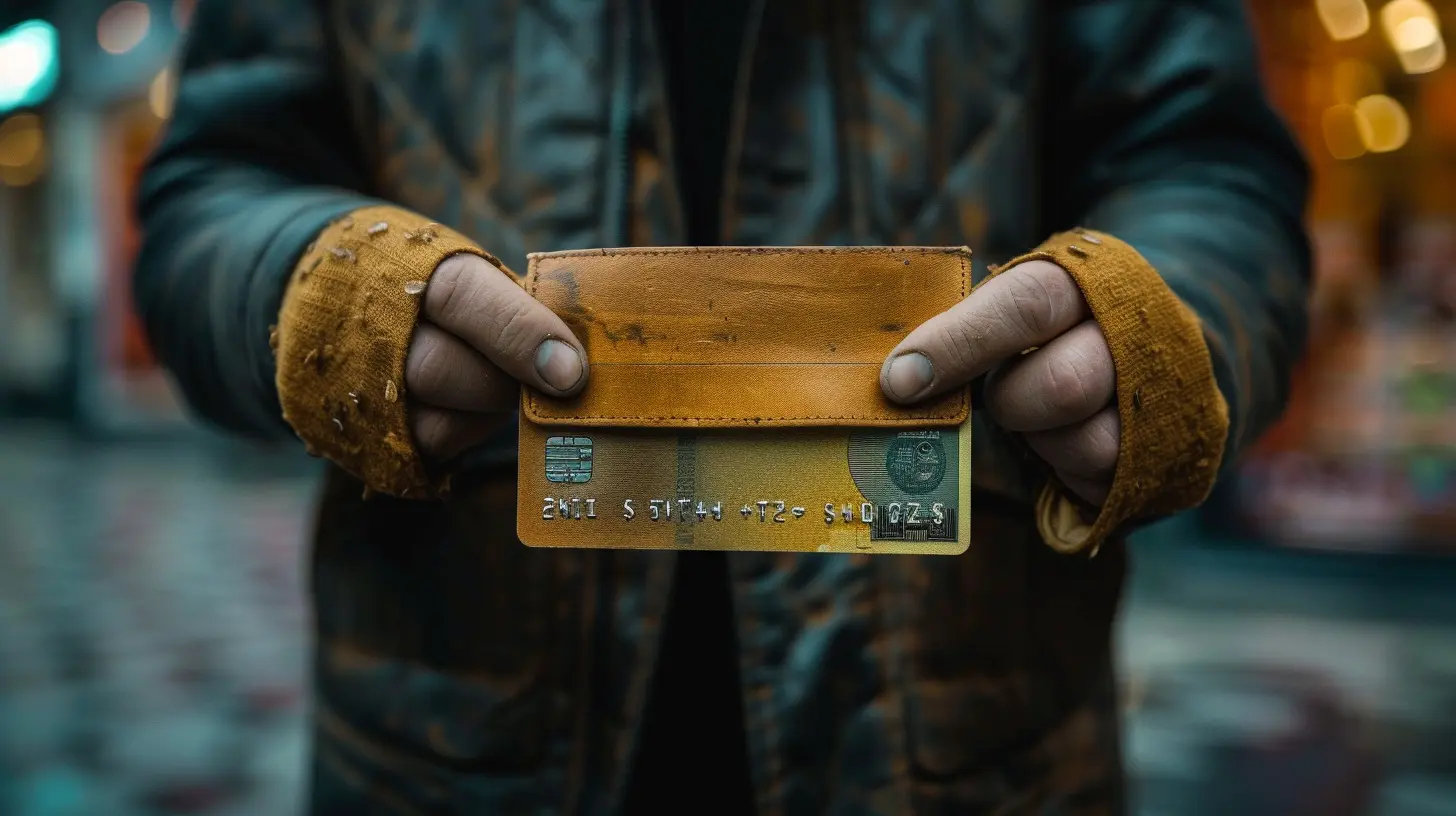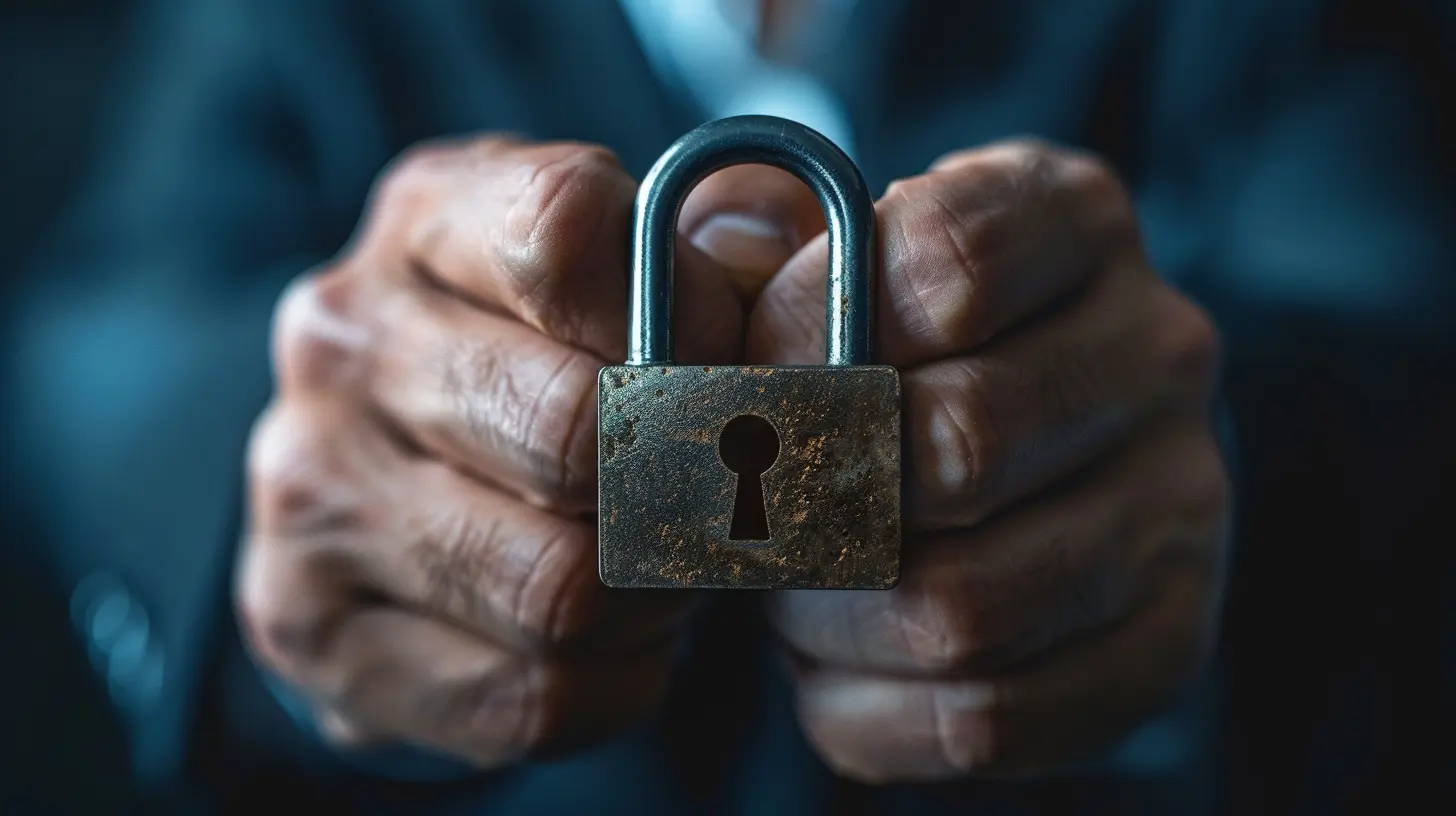How to Protect Yourself from Identity Theft and Financial Fraud
12 July 2025
Let’s be real—identity theft and financial fraud are no longer just buzzwords. In today’s digitized world, they’ve become a harsh reality that we all need to take seriously. It’s not just about someone stealing your credit card—it's about someone pretending to be you, draining your bank account, trashing your credit score, and even getting loans or opening accounts in your name.
But hey, breathe easy. You're not powerless. In fact, with a few smart moves and a little vigilance, you can build a fortress around your identity and financial life. Ready to take charge? Let’s walk through it together.
What Is Identity Theft and Financial Fraud, Really?
Before we dig into the how-to’s, let’s make sure we’re on the same page.Identity theft happens when someone swipes your personal information—like your Social Security number (SSN), bank details, or driver’s license—and uses it without your permission.
Financial fraud is a broad term that includes any kind of scam where someone uses deception for financial gain. Think of it as the evil twin of identity theft. They often go hand-in-hand.
Picture this: Someone gets ahold of your personal info, opens a credit card in your name, racks up thousands in charges, and ghosts. You’re left with the bill and a wrecked credit score. Ouch.
Signs You Might Be a Victim
Before we dive into protection, let’s talk symptoms. Like a bad flu, identity theft and financial fraud come with warning signs. Pay attention to these red flags:- Unexpected credit card charges
- Bills or mail you didn’t expect—especially for accounts you didn’t open
- Missing mail, especially financial statements
- Debt collectors calling about unfamiliar debts
- Your credit report showing accounts you don’t recognize
- Denied loan applications despite good credit
If any of these sound familiar, it’s time to act—fast.
1. Lock Down Your Personal Information
Online Habits Matter
Most fraudsters are fishing in the digital pond. Be smart with your online moves:- Use strong passwords. No more “123456” or “password123.” Use a mix of letters, numbers, and symbols. Better yet, use a password manager so you don’t have to remember them all.
- Enable two-factor authentication (2FA). It's an extra lock on your digital door.
- Don’t overshare on social media. Birthdays, addresses, even your pet’s name (yes, that’s a common password reset question)—keep those private.
- Beware of phishing scams. If an email or text looks shady, don’t click anything. Legit companies won’t ask for sensitive info over email.
Offline Counts, Too
It’s not just the digital world you need to worry about.- Shred documents with personal or financial info before tossing them.
- Keep your Social Security card at home—not in your wallet.
- Be cautious at ATMs and gas stations. Card skimmers are real.
2. Monitor Your Accounts Like a Hawk
You don’t need to be obsessive—but regular check-ins can save you from disaster.- Review your bank and credit card statements weekly. Yes, weekly. That way, you can spot weird charges early.
- Set up alerts. Most banks and apps let you get notified for charges, logins, or balance changes.
- Check your credit report. You're entitled to a free copy from each of the three bureaus (Equifax, Experian, and TransUnion) once a year. Space them out and check one every four months at AnnualCreditReport.com.
3. Strengthen Your Security Like a Pro
Use a Password Manager
Managing dozens of unique and complex passwords on your own? That’s a recipe for disaster. A password manager is like having a digital safe that remembers everything for you—kind of like having a bodyguard for each of your accounts.Install Antivirus and Keep Software Updated
Think of antivirus software as your digital immune system. It fends off viruses, malware, and those pesky Trojan horses. And don’t sleep on those software updates—they often patch major security flaws.Secure Your Wi-Fi Network
Ever walked down a street and seen networks like “Linksys” or “Netgear123”? That’s like leaving your front door wide open. Change your default network name (SSID) and use a strong password. Oh, and don’t use public Wi-Fi for banking—just don’t.4. Freeze Your Credit
This tip is pure gold.A credit freeze stops anyone from opening new accounts in your name. Even if a scammer has your SSN, they’re out of luck. And the best part? It’s free and doesn't affect your credit score.
Each credit bureau—Equifax, Experian, and TransUnion—lets you place a freeze online. You can unfreeze it temporarily if you need to apply for credit later.
5. Be Smart with Financial Transactions
Use Credit Cards Over Debit
Credit cards offer way better fraud protection. If someone gets your debit card info, they can drain your account right away. With credit cards, you’re not liable for fraudulent charges beyond $50—and many providers waive that too.Avoid Sending Sensitive Info Over Email or Text
It’s like handing over your house keys to a stranger. If you need to provide sensitive info, use secure portals or call directly.6. Be Cautious With Public Wi-Fi
Coffee shop Wi-Fi might be convenient, but it's also a playground for hackers. If you must use it, avoid accessing banking apps or entering login info. Better yet, use a VPN (Virtual Private Network). Think of it as a secure tunnel for your data.7. Watch Out for Scams
Scammers are creative—sometimes annoyingly so. Stay one step ahead.Common Scams to Know:
- Phishing emails/texts: Look legit but trick you into clicking malicious links.- IRS or government scams: Scammers pretend to be officials demanding payment. Real agencies don’t do that.
- Tech support scams: A pop-up says your computer’s infected and asks you to call a number. Don’t.
The rule? If it looks fishy, it probably is. Triple-check before you respond.
8. What to Do If You’re a Victim
First off—don’t panic. You’re not the first, and there’s a clear game plan to follow.Step-by-Step:
1. Contact your bank or credit card provider. Freeze or cancel the impacted accounts.2. Report the fraud to the FTC at IdentityTheft.gov. They’ll guide you through creating a recovery plan.
3. File a police report. Especially if you know who did it or need a report for a creditor.
4. Notify the credit bureaus. Request a fraud alert and consider a credit freeze.
9. Stay Educated and Informed
The fraud landscape is always evolving, so keep your radar up. Follow trusted finance blogs, set up Google alerts for “identity theft scams,” and read updates from the FTC and your bank.Remember: financial literacy is your best armor.
10. Talk to Your Kids and Family
Identity theft isn’t just an adult problem. Kids are actually prime targets because no one’s usually checking their credit. Sit down with your kids and loved ones—show them how to protect their info, recognize scams, and stay safe online.Bonus: Use Identity Theft Protection Services (Optional)
If you want extra peace of mind, there are legit identity protection services out there like LifeLock, IdentityForce, and Aura. They monitor your credit, alert you to suspicious activity, and even help with recovery if the worst happens. Just make sure to read the fine print and check reviews first.You’ve Got This
At the end of the day, protecting yourself from identity theft and financial fraud boils down to being proactive, not paranoid. It's kind of like brushing your teeth—do it regularly, and you’ll prevent a world of pain down the road.You don’t need to become a tech wizard or hire a bodyguard. Just adopt these habits, stay alert, and trust your gut. If something feels off, take action. Your financial future is way too important to leave unguarded.
So, are you ready to shut the door in the face of cyber creeps and fraudsters? Let’s go build that digital fortress, one step at a time.
all images in this post were generated using AI tools
Category:
Financial EducationAuthor:

Zavier Larsen
Discussion
rate this article
2 comments
Zephira McAlister
Empowering yourself with knowledge is the first step to safeguarding your finances. By understanding the risks and implementing proactive measures, you can protect your identity and financial well-being. Stay vigilant, be informed, and take charge of your financial future—security is within your reach!
November 18, 2025 at 5:57 AM

Zavier Larsen
Thank you for your insightful comment! Empowering yourself with knowledge is indeed crucial in protecting against identity theft and financial fraud. Staying informed and proactive is key to securing your financial future.
Sonya McGuffey
Stay vigilant, safeguard your financial future!
July 24, 2025 at 12:05 PM

Zavier Larsen
Absolutely! Staying vigilant is key to protecting your financial future. Thanks for emphasizing that!


